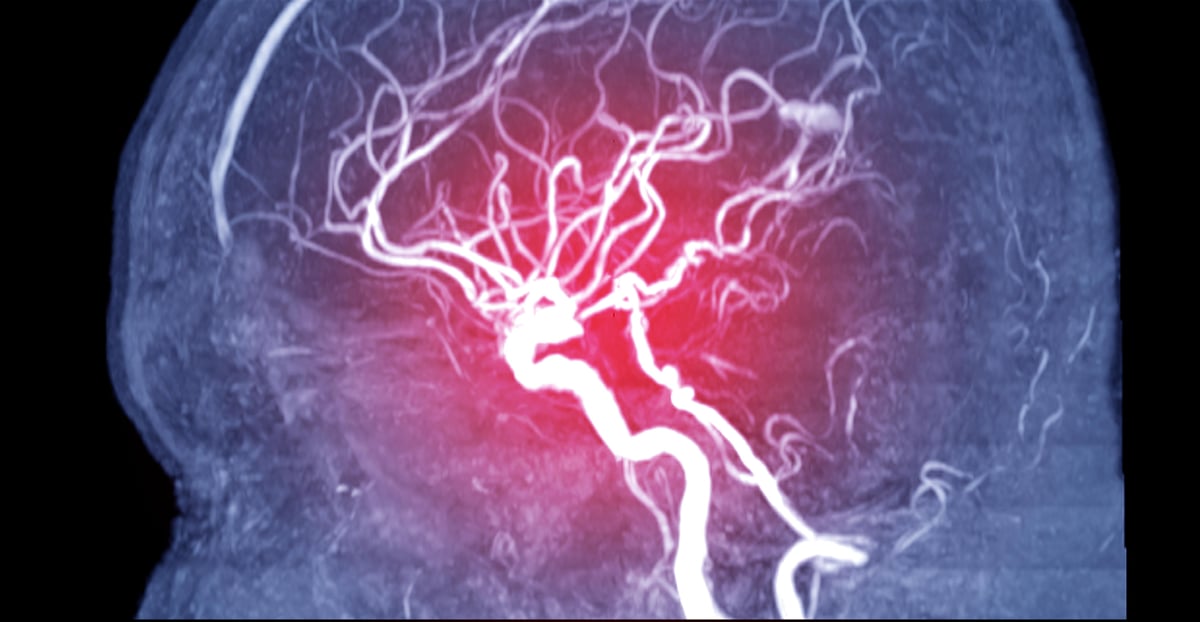Meds, Exercise Recommended for Stroke Prevention After sICAS

TUESDAY, March 22, 2022 (HealthDay News) -- For patients with symptomatic intracranial atherosclerotic arterial stenosis (sICAS), initial treatment should comprise medications and exercise, and not percutaneous transluminal angioplasty and stenting, according to a practice advisory published online March 21 in Neurology.
Tanya N. Turan, M.D., from the Medical University of South Carolina in Charleston, and colleagues reviewed treatments for reducing the risk of recurrent stroke or death in patients with sICAS and developed recommendations for management. The resulting practice advisory has been endorsed by the American Heart Association/American Stroke Association, Neurocritical Care Society, and Society of Vascular and Interventional Neurology.
The authors note that clinicians should recommend 325 mg/d aspirin for long-term prevention of stroke and death; to further reduce stroke risk in patients with severe (70 to 99 percent) sICAS who have low risk of hemorrhagic transformation, addition of 75 mg/day clopidogrel to aspirin for up to 90 days is recommended. For patients with sICAS, clinicians should recommend high-intensity statin therapy to achieve a goal low-density lipoprotein cholesterol level <70 mg/dL, a long-term blood pressure target of <140/90 mm Hg, at least moderate physical activity, and treatment of other modifiable risk factors. In patients with moderate (50 to 69 percent) sICAS, clinicians should not recommend percutaneous transluminal angioplasty and stenting for stroke prevention; this also should not be recommended as the initial treatment in patients with severe sICAS. Outside clinical trials, clinicians should not routinely recommend angioplasty alone or indirect bypass for stroke prevention; direct bypass also should not be recommended for stroke prevention.
"Reviewing all of the evidence that has accumulated over the last two decades, we found that the research shows that medical management is more beneficial for people as an initial treatment," Turan said in a statement.
Several authors disclosed financial ties to the pharmaceutical and medical device industries.
Related Posts
‘Artificial Pancreas’ Technology Boosts Blood Sugar Control for Young Kids With Type 1 Diabetes
FRIDAY, March 17, 2023 (HealthDay News) -- Just like adults, young children with...
As Omicron Rages, How Important Are Case Counts Anymore?
WEDNESDAY, Jan. 12, 2022 (HealthDay News) -- The record-breaking numbers...
3 LA County Deaths Show Flea-Borne Typhus Is on the Rise
FRIDAY, Aug. 4, 2023 (HealthDay News) -- Los Angeles county is seeing more cases...
Even a Little Light in Your Bedroom Could Harm Health
TUESDAY, March 15, 2022 (HealthDay News) -- People who sleep with a light on may...
